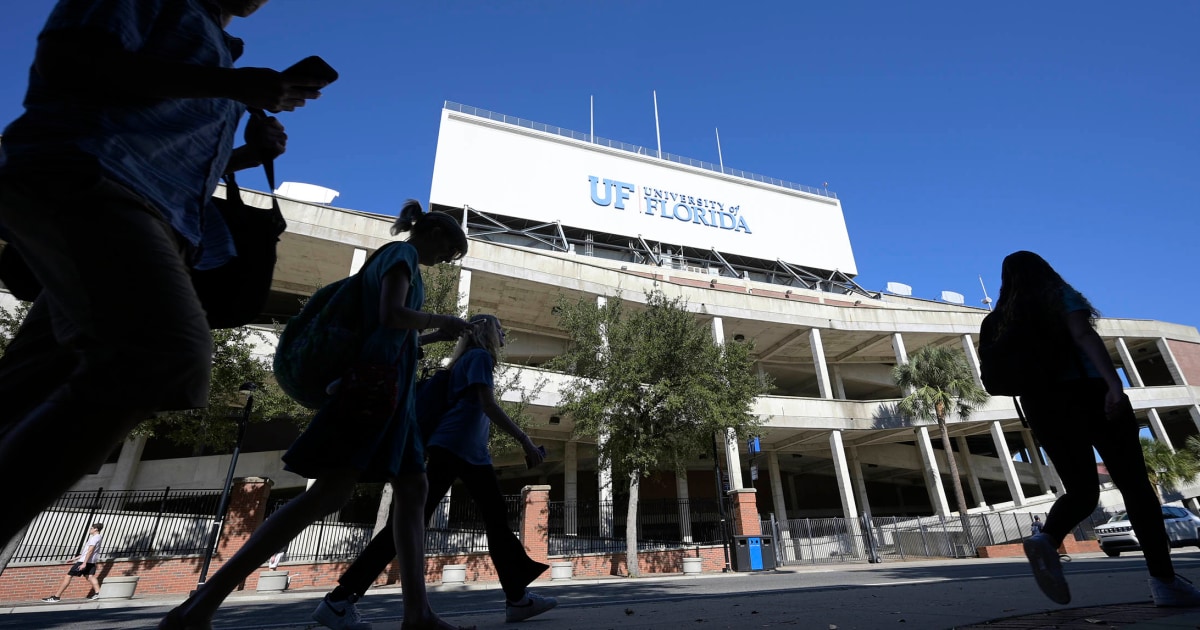“Individuals, they cannot decide where they are born. They’re only thinking of their educational opportunities," one professor said.
A Florida law is prompting backlash from professors, students and advocates across university campuses in the state who say the measure could keep Chinese grad students out of their schools.
The measure, State Bill 846, restricts the state’s public universities from hiring graduate students for positions such as researchers and lab assistants, from “countries of concern,” including China, the largest contributor of international students in the state.
While the measure went into effect last July, schools typically issue offer letters in the spring, prompting the recent protests.
While Gov. Ron DeSantis’ has said that the legislation is part of an attempt to counter China’s “malign influence” in the state, critics say it’ll do more harm than good. From taking legal action to participating in rallies this week, students, faculty and others are calling for the measure to be reversed, arguing that the law could pose a threat to the state’s academics and impede scientific advancements and freedoms.
“It’s discriminatory,” Chenglong Li, a professor at the University of Florida College of Pharmacy, told NBC News. “Individuals, they cannot decide where they are born. They’re only thinking of their educational opportunities.



How would that be contributing to U.S. R&D? Because when you say “American engineering company” that sounds like a private business who wouldn’t be voluntarily giving anything to anyone
Private businesses do lots of R&D and it results in better technology. Would I like all R&D to be government subsidized and public domain? Sure. But that isn’t how the world works.
Keeping them in a domestic company for a while is a greater benefit to the U.S. than it would be if they went back to China and developed that technology,
As for voluntarily giving it, of course they wouldn’t voluntarily give it. That’s an entirely separate issue.